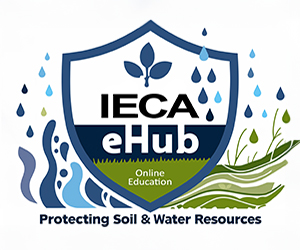
Stormwater Management Pond Muck – Costly Waste or Valuable Resource?
-
Register
- Non member - $40
- Professional member - $15
- Professional Plus member - Free!
- Professional Plus Org member - Free!
- Student member - $15
- Young Professional member - $15
- Emeritus member - $15
- Discounted Professional member - $15
- Australia Member - $15
- Australia Non-Member - $40
- Australasia Professional Plus - Free!
- Australasia Professional Plus Org - Free!
- Australian Student - $15
- New Zealand Member - $15
- New Zealand Professional Plus Org - Free!
- New Zealand Professional Plus - Free!
- New Zealand Student - $15
Stormwater Management Pond Muck – Costly Waste or Valuable Resource?

Presented by: Francine Kelly - Hooper, Ph.D.
Level: Beginner | Intermediate | Advanced
Duration: 1 hour
Type of Course: On-Demand
SWM ponds require routine sediment removal in order to maintain stormwater quality and quantity control. Sediments typically contain common urban contaminants (e.g. petroleum hydrocarbons (PHCs), polyaromatic hydrocarbons (PAHs), road salt, etc.) which trigger non-hazardous waste disposal requirements. Landfill tipping fees can amount to hundreds of thousands to millions of dollars per pond. This webinar presents two recent sediment beneficial use case studies. These studies demonstrate how ecotoxicity tests and risks assessments allowed the sediments to be used as topsoil amendments as cost effective and environmentally sustainable alternatives to landfill disposal. These studies set the precedent for future SWM pond sediment beneficial use projects as well.
Learning Objectives:
- Understanding SWM pond sediment chemistry
- Understanding the disposal versus beneficial use evaluation process
- Lessons learned from the first 2 SWM pond sediment beneficial use projects in Canada
Course Last Reviewed: June 2024

Francine Kelly-Hooper, Ph.D.
Dr. Francine Kelly-Hooper is a Senior Soils Scientist with over 20 years of experience in the government and private consulting sectors. Francine operated her research based consulting firm, Kelly Hooper Environmental, for 16 years before joining CH2M HILL in 2014. She is now an Environmental Contaminant Scientist at Stantec Consulting. Francine completed her PhD at the University of Waterloo in 2013, where she developed a new method for identifying petroleum hydrocarbon sources in soils and sediments. Over the past 18 years, she has compiled sediment chemistry profiles for 120 SWM ponds. Francine and her team continue to work with municipalities and governments on the development of a new approach to SWM sediment beneficial use evaluations.



